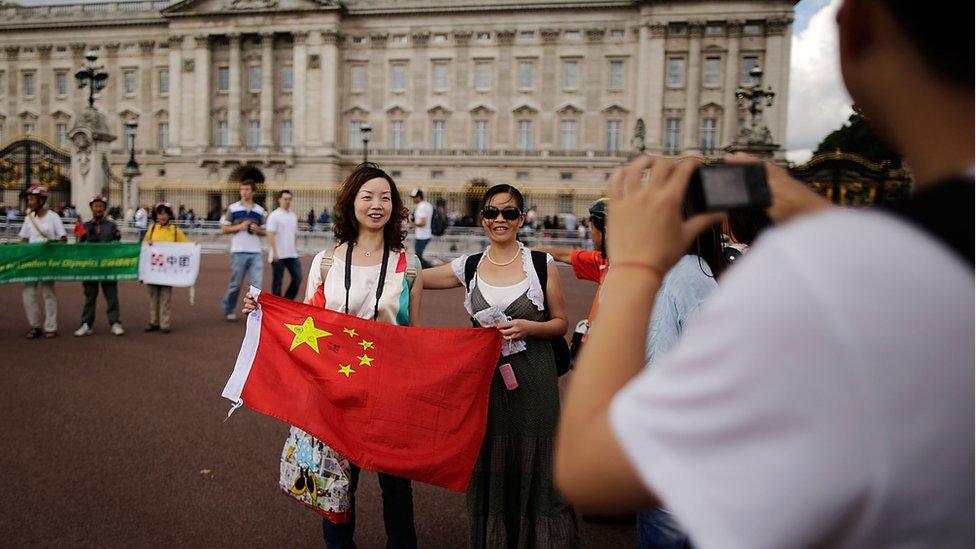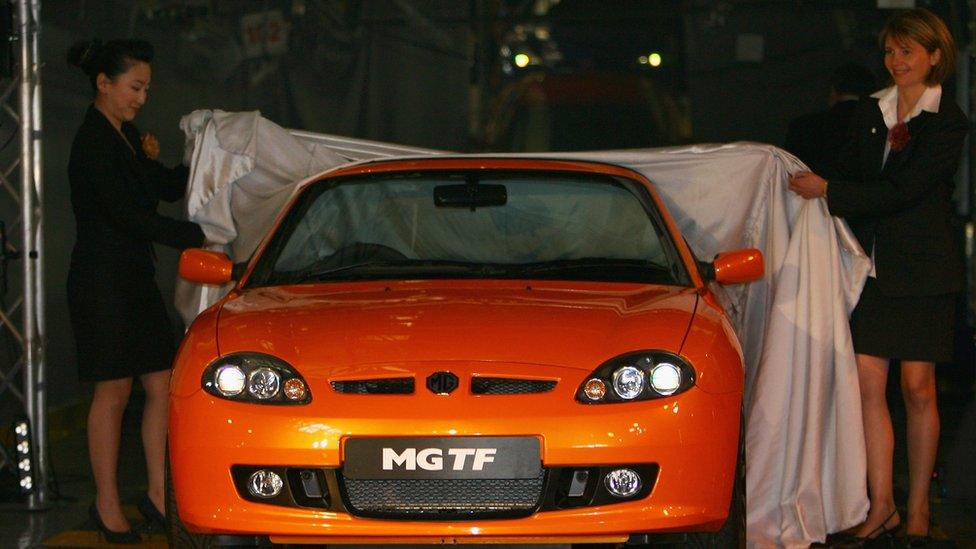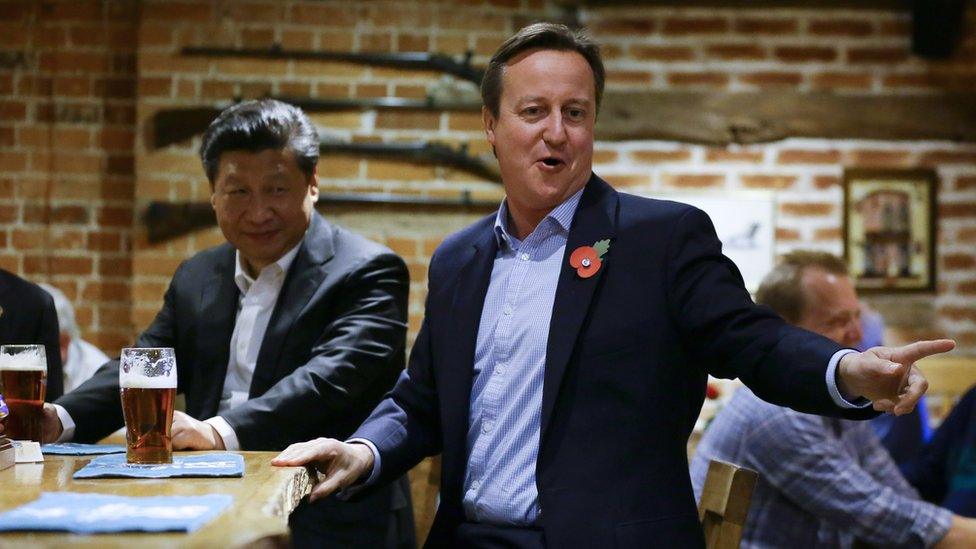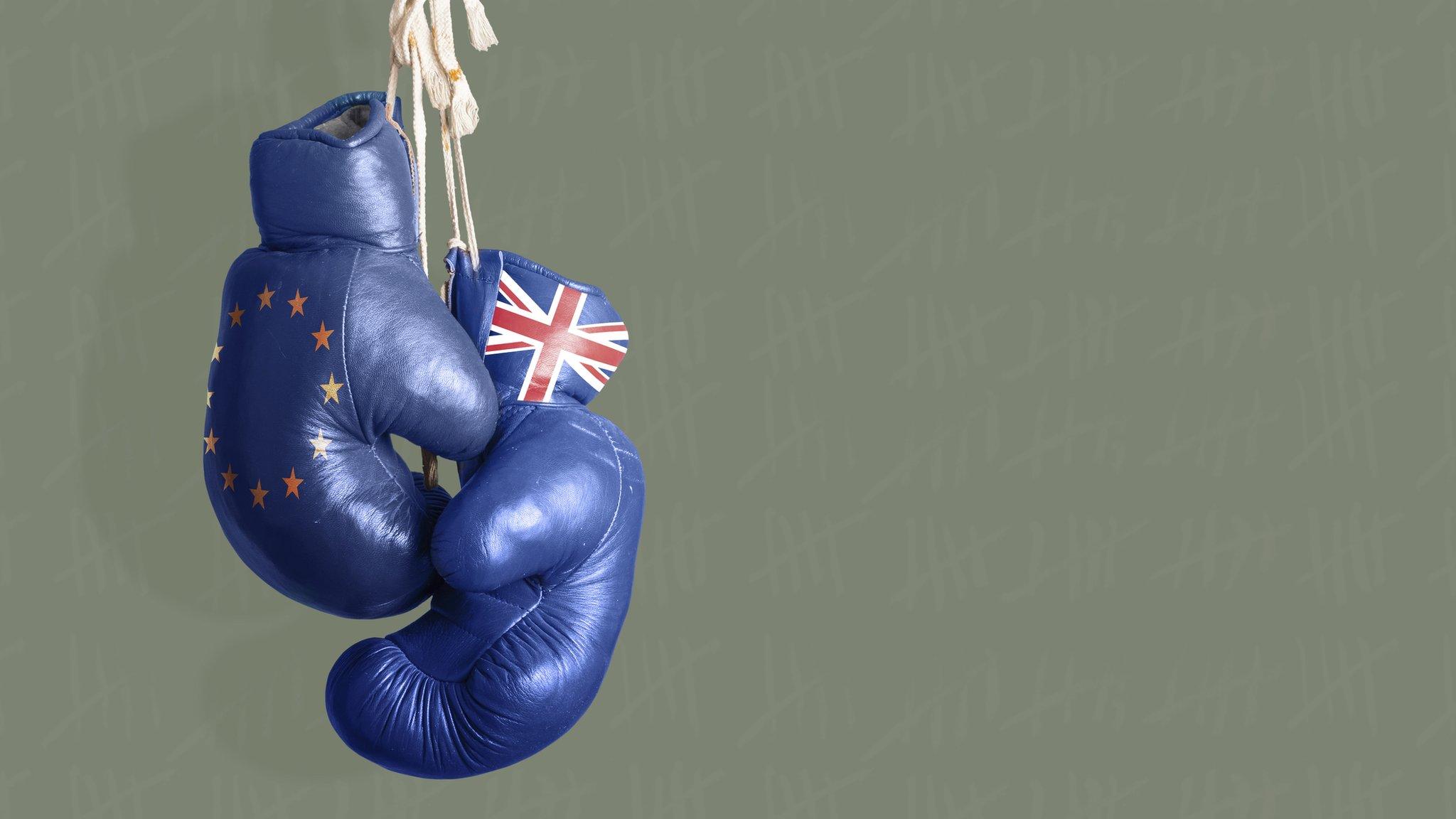Does China care if the UK leaves the European Union?
- Published

The view from China appears to be unanimous: Chinese leaders and business people want the UK to remain inside the European Union.
To understand why this view is so strongly held, you have to grasp the scale of Chinese investment in the UK.
There is a long list of British brands and companies that now have Chinese backers: Weetabix, House of Fraser, MG cars, London taxi cabs, Heathrow and Manchester airports.
And the UK has become the second most popular destination for Chinese investment in Europe, second only to Italy.
Many investors worry that those economic ties will be damaged if Brexit occurs.
John Zai is one of them. Originally from Shanghai, he heads Cocoon Networks, a venture capital group that plans to invest in tech companies in Europe, primarily in the UK.
It's just signed a 10-year lease on the former London Stock Exchange and aims to transform it into Europe's largest tech innovation centre.
"If we can combine the European technology and the ideas with the Chinese money, the Chinese capital, it's going to be crazy," he enthuses.
Talent
But those plans could all change if the UK votes to leave the EU.
"It's going to probably cause a lot of problems, because Cocoon is a platform bridge between China and Europe.
"It's China and Europe, not China and the UK or China and London.
"Tech companies are really dependent on talent," he says. "If the UK leaves the EU, all this different talent from the EU, from all these different countries, they're going to be gone.
"People are always talking about how London is going to become a Silicon Valley but without all this talent, it's not going to happen."

The MG brand was relaunched with financial backing from China
Many hope the UK's economy will flourish because of the close relationship between London and Beijing.
Deals worth more than £40bn ($56bn) were signed when Chinese President Xi Jinping visited the UK last October.
During that visit, Mr Xi made his views clear: China supports a "united EU".
"China definitely wants to sell more Chinese products into the European market, but they'd better do it from the eurozone really," says Philippe Le Corre, a visiting fellow at the Brookings Institution in Washington.
London would be less attractive to investors if it could offer only the UK market of 65 million people, rather than the 500 million across the EU, he says.
"London would not lose its role as trader of renminbi but in terms of consumer products, big industries, even tourism, I believe London would be affected."
But it's not all about money.
For Mr Xi, the EU referendum also carries political concerns.
During his time in power, over almost four years, he's fostered closer ties with London - a counterbalance, perhaps, to China's rockier relations elsewhere.
If the UK leaves the EU, Mr Xi's judgement could be called into question.
"There has been some criticism that he has been spending too much attention on ceremonial matters and diplomacy without concern for the slowing Chinese economy at home," says Yu Jie, the China programme manager at the LSE Ideas think tank in London.
"So, if the UK leaves the EU, it won't only undermine the Chinese relationship with the UK. It will also undermine Xi Jinping's image as a steady leader because he's betting on the wrong horse."

Could that time building a rapport with Mr Cameron have been wasted?
Chinese entrepreneurs might also come to feel that they've bet on the wrong horse. Over tea at his private members' club, Mr Zai admits to worries.
"I'm just afraid if we leave the EU, it's going to be like an earthquake, like a huge earthquake. To be honest, I have no idea what's going to happen. Personally, I'm quite nervous."
Nerves in London stretching all the way to the halls of power in Beijing.
Some might argue that Chinese concerns shouldn't matter and British voters will make their own decisions on EU membership.
But those who have invested financial and political capital in a closer relationship between China and the UK might be heading for a few sleepless nights.
- Published30 December 2020

- Published29 April 2016

- Published22 June 2016

- Published15 June 2016
